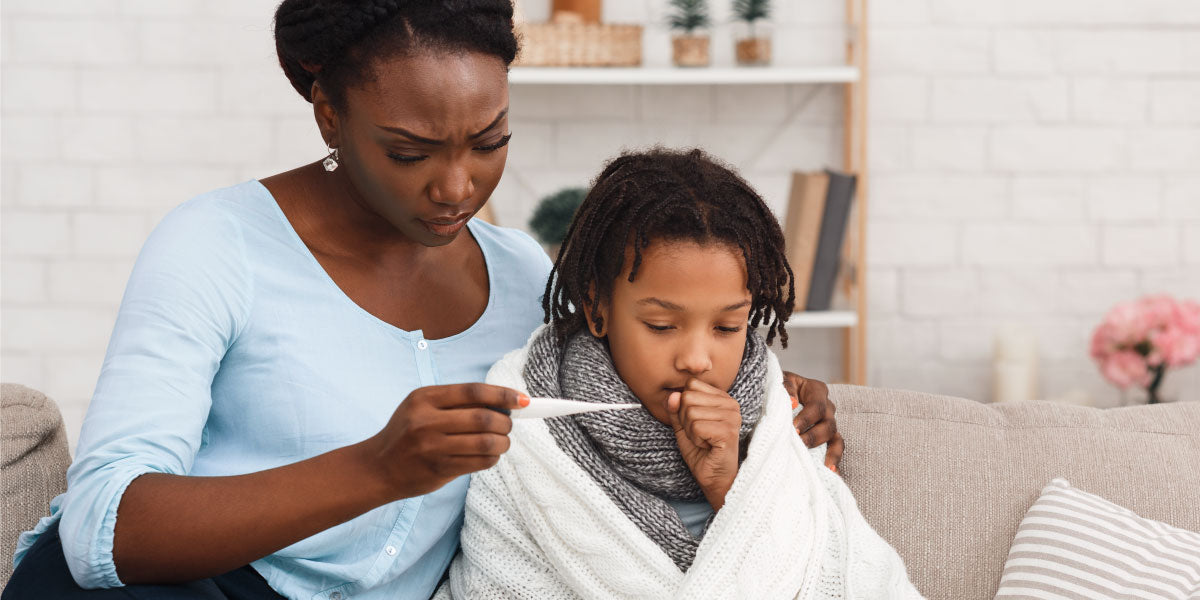Coughing is an important part of the body’s defence system, helping to rid the body of potentially harmful microbes and irritants, the most common cause being a respiratory tract infection (RTI), such as a cold.
There are many types of coughs, including wet and dry. Wet coughs produce phlegm or mucus, whereas dry coughs don’t. A variety of viral respiratory infections can lead to coughing due to irritation and inflammation in the airways, usually caused by colds, flu, croup, pneumonia or bronchitis. Depending on the infection, the cough may sound hoarse or have more of a wheezing sound, and may also get worse at night due to mucus trickling from the nose down the throat, causing irritation. Other signs that your child may have a viral infection include fever, runny or stuffy nose, sneezing, headache, and body aches and pains. Unlike bacterial infections, viral infections do not respond to antibiotic treatment.
Besides plenty of rest and fluids, there are over-the-counter (OTC) medications available to help relieve the symptoms.
Whooping cough, a contagious bacterial infection of the lungs – also called pertussis as it is caused by the bacteria Bordetella pertussis – is particularly serious in babies under the age of 6 months who are at risk of complications. Whooping cough is often treated with antibiotics, but there is also a vaccine available – known as the diphtheria, tetanus and pertussis (DTaP) vaccine – for children younger than 7 years of age.
Whooping cough usually starts with cold-like symptoms, such as a runny nose and dry cough, lasting for about one week. Thereafter, a more definite cough develops, which may last for 10 weeks or more. The cough comes in long spells and often ends with a high-pitched ‘whoop’ sound when the child breathes in. Sometimes, children cough so much that they vomit afterwards. In more severe cases, babies and children may have problems catching their breath after a coughing spell. It is common in children with whooping cough to have other infections, such a pneumonia (chest infection) and middle ear infections.
If you think your child may have whooping cough, you should consult your general practitioner (GP) who will determine treatment options based on your child’s age, severity of symptoms, and how long your child has had the symptoms. Antibiotics may be prescribed as they reduce the amount of time your child is infectious. However, the coughing may continue for many weeks. In most cases, children may be cared for at home once seen by your doctor. Some tips include giving your child smaller frequent meals as well as fluids as often as possible, and not allowing smoking inside your home or around your child.
For more information refer to your Healthcare Provider. Speak to your healthcare practitioner about Adcock Ingram’s range of cough medications.
References:
1. Healthline. Kids Dry Cough: 7 Causes and Tips for Relief. Available from: https://www.healthline.com/health/kids-dry-cough#allergies. Accessed date: 02 December 2021.
2. Royal Children’s Hospital Melbourne. Kids Health Info: Cough. Available from: https://www.rch.org.au/kidsinfo/fact_sheets/Cough/. Accessed date: 02 December 2021.
3. Royal Children’s Hospital Melbourne. Kids Health Info: Whooping cough. Available from: https://www.rch.org.au/kidsinfo/fact_sheets/Whooping_cough/. Accessed date: 02 December 2021.
4. Centers for Disease Control and Prevention. Vaccine Information Statements (VISs). DTaP (Diphtheria, Tetanus, Pertussis) VIS. Available from: https://www.cdc.gov/vaccines/hcp/vis/vis-statements/dtap.html. Accessed date: 02 December 2021.

